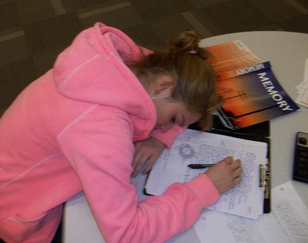90
According to the National Sleep Foundation (NSF) (2016), adolescents need about 8 to 10 hours of sleep each night to function best. The most recent Sleep in America poll in 2006 indicated that adolescents between sixth and twelfth grade were not getting the recommended amount of sleep. On average adolescents only received 7 1⁄2 hours of sleep per night on school nights with younger adolescents getting more than older ones (8.4 hours for sixth graders and only 6.9 hours for those in twelfth grade). For the older adolescents, only about one in ten (9%) get an optimal amount of sleep, and they are more likely to experience negative consequences the following day. These include feeling too tired or sleepy, being cranky or irritable, falling asleep in school, having a depressed mood, and drinking caffeinated beverages (NSF, 2016). Additionally, they are at risk for substance abuse, car crashes, poor academic performance, obesity, and a weakened immune system (Weintraub, 2016).

Why don’t adolescents get adequate sleep? In addition to known environmental and social factors, including work, homework, media, technology, and socializing, the adolescent brain is also a factor. As adolescent go through puberty, their circadian rhythms change and push back their sleep time until later in the evening (Weintraub, 2016). This biological change not only keeps adolescents awake at night, it makes it difficult for them to get up in the morning. When they are awake too early, their brains do not function optimally. Impairments are noted in attention, behaviour, and academic achievement, while increases in tardiness and absenteeism are also demonstrated.
To support adolescents’ later sleeping schedule, the Centers for Disease Control and Prevention recommended that school not begin any earlier than 8:30 a.m. Unfortunately, over 80% of American schools begin their day earlier than 8:30 a.m. with an average start time of 8:03 a.m. (Weintraub, 2016). Psychologists and other professionals have been advocating for later school times, and they have produced research demonstrating better student outcomes for later start times. More middle and high schools have changed their start times to better reflect the sleep research. However, the logistics of changing start times and bus schedules are proving too difficult for some schools leaving many adolescent vulnerable to the negative consequences of sleep deprivation.
Link Your Learning
For an overview of teenage physical development, with an emphasis on the importance of sleep, please see the following video put out by the Middlesex-London Health Unit. As you watch this video, please think back to your teenage years. How helpful would you have found the recommendations that the video makes concerning sleep?

